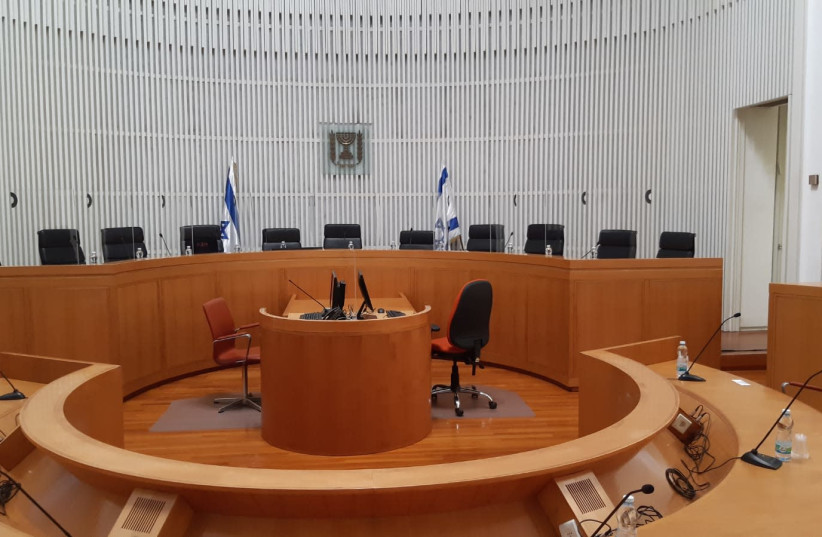The High Court of Justice on Thursday ruled to strike down as unconstitutional a part of a bill known as the Police Law, which gave National Security Minister MK Itamar Ben-Gvir broader power over the Israel Police.
The ruling concluded a two-year legal fight over the law, which passed on December 27, 2022, days before the current government took office.
Ben-Gvir preconditioned his agreement to join the government and become the national security minister on this law’s passage.
The law, which was an amendment to the existing Police Law (also known as the Police Ordinance), anchored the police’s subordination to the government and allowed the national security minister to set policy and general principles for the police.
Although the court upheld this part of the bill, it ruled that the following part, which enabled the minister to set policy regarding investigations after hearing the opinion of the attorney-general and after consulting with the police commissioner and the officers responsible for investigations, was unconstitutional.
The leading author of the ruling is former interim chief justice Uzi Vogelman. He retired in October, but the law grants Vogelman three months after retirement to complete the remaining rulings.

Including Uzi Vogelman, five justices out of the unusually large nine-member bench ruled to strike down the part of the bill regarding investigations, while four opposed this part of the ruling.
Vogelman argued that while the first part of the law legitimately gave the national security minister the power to set general policy, the second part regarding investigations granted the minister unbalanced power, which could lead to false investigations and, as a result, to violation of human rights.
This was exacerbated by the fact that according to the law, the minister only needed to “hear” the A-G’s opinion on policies regarding investigations – which gave him the option of ignoring the opinion.
The minority opinion was that just as in the first part of the law, where the minister can only set general policy, the correct interpretation of the second part of the law was that the minister only had the right to set general policy on investigations, and not involve himself in specific investigations.
This in itself, they said, was not unconstitutional and, therefore, should not be canceled, and there were other legal avenues with which to deal with cases where the minister violated the law.
Five different groups petitioned the High Court after the law passed.
One of them, the Movement for Quality Government in Israel (MQG), said in response to the ruling, “The High Court’s ruling is a significant victory for the rule of law and the independence of the police, preventing it from becoming politicized.
“In its ruling, the court made it unequivocally clear that the other sections of the law also do not allow the minister to interfere in operative decisions of the police and that his authority is limited only to setting general policy,” it added.
The MQG continued, “We welcome the court’s determination that the police are obligated to continue acting independently, professionally, and according to the national interest and that the law does not change the relationship between the political echelon and the police. The verdict is an important milestone in maintaining the independence of the police and the law enforcement system in Israel.”
Another one of the petitioners was MK Yoav Segalovitz (Yesh Atid), the former deputy internal security minister.
He said in response to the ruling, “We warned that changing the police ordinance would lead to its politicization. Ben-Gvir’s conduct is already painting the police in a political color. It’s good that the court made the decision, but it’s a shame we had to get to this point.
“The one responsible for this is [Prime Minister Benjamin] Netanyahu, who agreed to appoint an unqualified, dangerous, and convicted criminal as the national security minister,” according to Segalovitz.
Ben-Gvir reacts to ruling
Ben-Gvir responded to the ruling on X/Twitter, “The High Court of Justice once again positions itself as the sovereign authority, trampling on the will of the voter. The court’s harsh decision to neutralize the Police Law was intended to strip the minister of his authority and to try to give the Attorney-General’s Office and the attorney-general control over the police.”
“In a democratic state, it is the minister in charge who sets policy for the police, but the court clearly has no interest in this,” he concluded.
